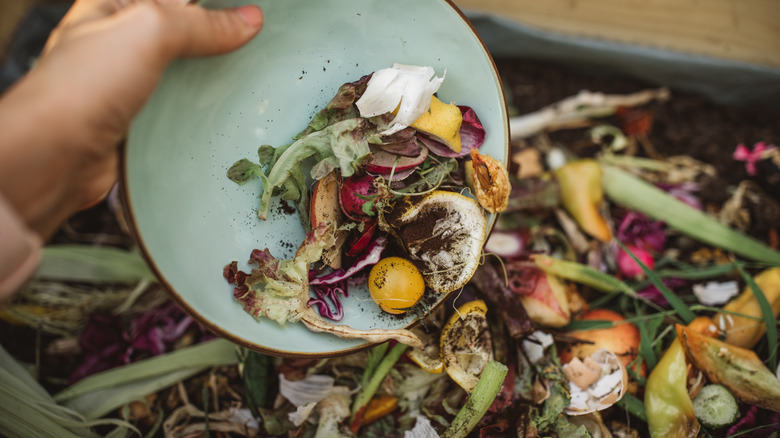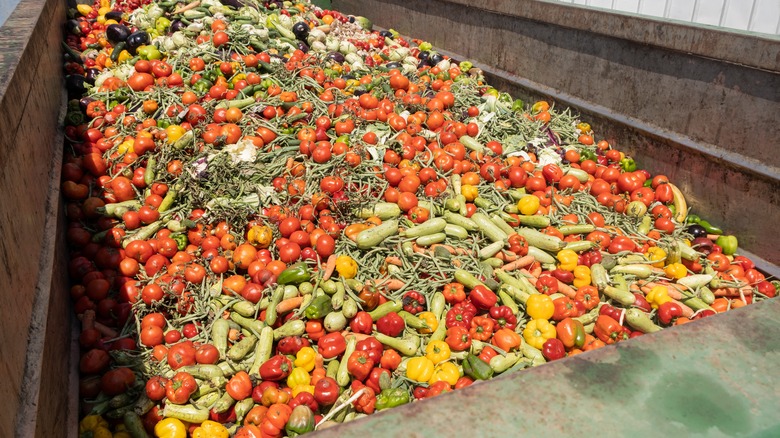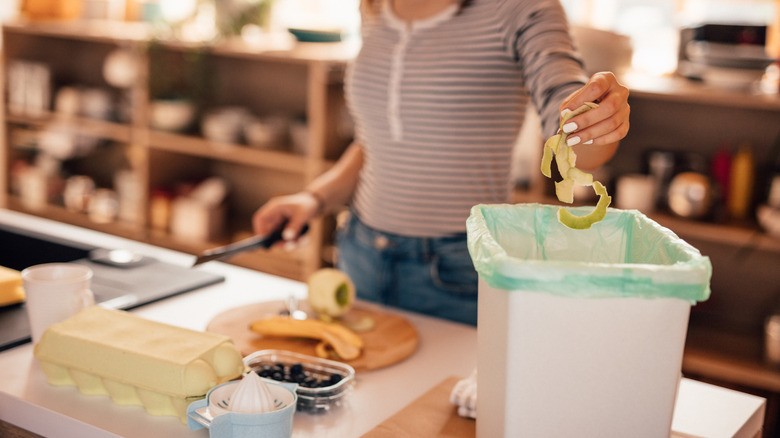States Are Using Landfill-Bound Food To Fight Climate Change And Hunger
The year 2023 has been nothing if not eventful. And in a long-awaited victory in the fight against food insecurity, states across America are rethinking how they handle food waste.
According to the Harvard Food Law and Policy Clinic (FLPC), 40% of all food in the U.S. is wasted, which also squanders water, energy, and space in landfills. It was also estimated that Americans would waste 312 million pounds of food on Thanksgiving alone, per ReFed. Meanwhile, as reported by the USDA, over 44 million households faced food insecurity in 2022. Now, legislators are stepping up to the literal and proverbial plate and rolling out systemwide solutions for a systemic epidemic.
In 2015, the Environmental Protection Agency (EPA) announced the United States 2030 Food Loss and Waste Reduction Goal, pledging to ax nationwide food waste by 50% from 2014 figures. Now, as states across the country are setting up systems for facilitating food donations, foodies are starting to see actionable steps for reducing food waste in a lasting and impactful way.
In Maryland, farmers can receive a tax credit of up to $5,000 for their food donations. Colorado, California, and Massachusetts are working on legislation that would provide funds to private-sector composting and organic collections. And in Maine and Rhode Island, schools have rolled out programs to cut back on food waste in cafeterias — and this is only the beginning.
Businesses establishing new avenues for expired food and scraps
Not only is food waste a bummer (make that a tragedy) in and of itself, as food is tossed out while many go hungry, but tossing food into landfills also contributes to climate change. As pounds of produce, meat, and dairy products break down, they release methane gas into the atmosphere, contributing 8% to 10% of all global greenhouse gas emissions, Harvard University law professor Emily Broad Leib told AP. A large part of it comes down to informed consumerism and knowing which foods are safe to eat past the printed expiration date. But, the gravity of the issue becomes manifold on a business scale compared to a single household.
Some businesses have been making strides of their own already. Panera Bread has a "Day-End Dough-Nation" program in which all the leftover bagels, bread, and pastries at the end of the night are bagged up and donated to local nonprofits. Now, the idea is moving to the statewide level.
A program in New York requires larger chain grocery stores to donate whatever food they can and recycle any remaining scraps to be converted into energy. In Massachusetts, the Commercial Food Material Disposal Ban set limits on how much food waste businesses can throw away (half a ton per week). The goal is to reduce the state's food waste by 30% by 2030. All 50 states have passed legislation that makes it easier for businesses to donate food, protecting them from any potential lawsuits connected to their donated goods.
States imbuing their people with a little extra responsibility
Legislators haven't only been focusing on brick-and-mortar businesses. At the personal level, the leader of this movement is Vermont. The state entrusts individual households with collecting their own food scraps and separating them from trash. Compost collectors come around to collect the buckets or the buckets can be taken to drop-off carts. Since Vermont's "Universal Recycling Law" went into effect in July 2020, the Vermont Foodbank has revealed that statewide food donations have increased by 40%.
Following Vermont's lead, California implemented a major statewide reform in trash collection last year by introducing a green trash can. Per the program, food scraps must be scraped into the green bin separately from other trash, and the bio-waste can be easily converted into energy. By weaving this change into the normal trash collection process (and by targeting households and businesses) the state has streamlined the recycling process, making it easy and convenient for folks to do their part without having to think about it. By 2025, the law stipulates that California must reduce organic waste in landfills from 23 million tons to 5.7 million tons.
Other comparable systems have already proven successful in other countries, perhaps partly due to their strict guidelines and unappealing penalties. In 2016, France passed a law prohibiting businesses from throwing away any unsold food products that are fit for consumption; they must be donated instead, or else businesses face a hefty fine.


